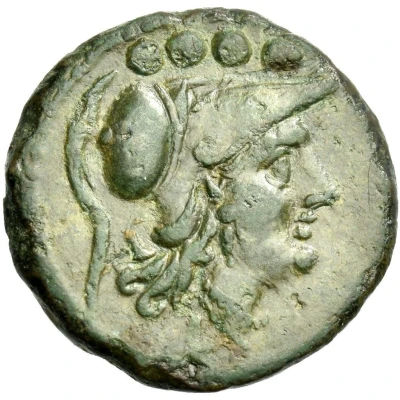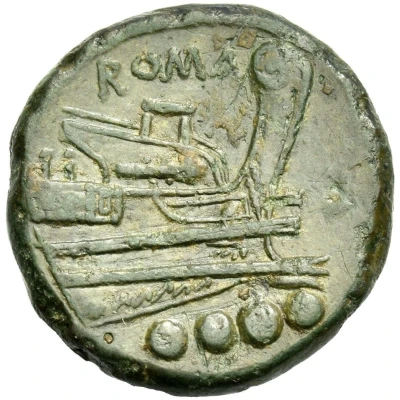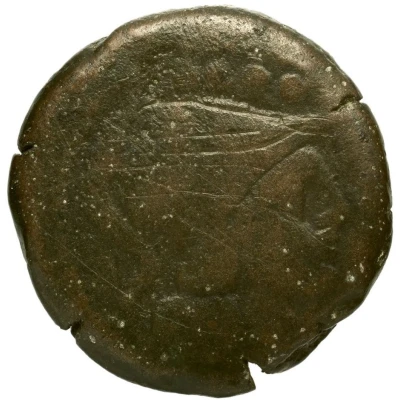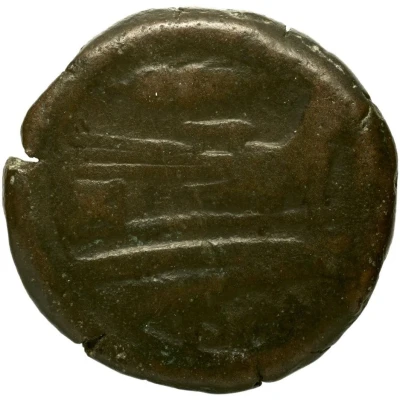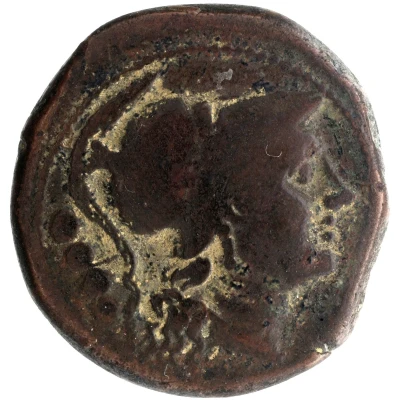
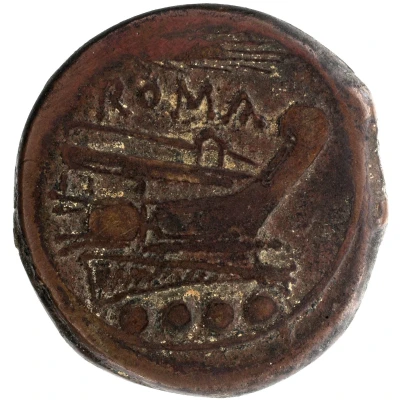

© American Numismatic Society (ANS)
Triens Anonymous; ROMA 211 BC - 210 BC
| Bronze | 15.58 g | 27 mm |
| Issuer | Rome › Roman Republic (509 BC - 27 BC) |
|---|---|
| Period | Republic (509 BC - 27 BC) |
| Type | Standard circulation coin |
| Years | 211 BC - 210 BC |
| Value | Triens (1⁄30) |
| Currency | Denarius of 10 Asses (221 – 141 BC) |
| Composition | Bronze |
| Weight | 15.58 g |
| Diameter | 27 mm |
| Shape | Round (irregular) |
| Technique | Hammered |
| Orientation | Variable alignment ↺ |
| Demonetized | Yes |
| Updated | 2024-10-06 |
| Numista | N#386085 |
|---|---|
| Rarity index | 100% |
Reverse
Prow, right; above, mark (corn-ear) and inscription; below, denominational mark.
Script: Latin
Lettering:
ROMA
●●●●
Comment
Weight varies from 8.81g-15.58gMinted in Sicily
Interesting fact
The Triens coin was used as a means of payment for everyday transactions, and its design was standardized to ensure consistency and authenticity. The front of the coin features the image of a mythical creature called a "she-wolf," which was a symbol of Rome and its founding legend. The back of the coin features a stylized image of a tree, which represented the connection between the Roman people and their natural environment. The use of bronze in the production of the Triens coin was also significant, as it was a durable and widely available material that was well-suited for circulation coins. Overall, the Triens coin is a fascinating piece of history that provides insight into the early days of the Roman Republic and its economic systems.
